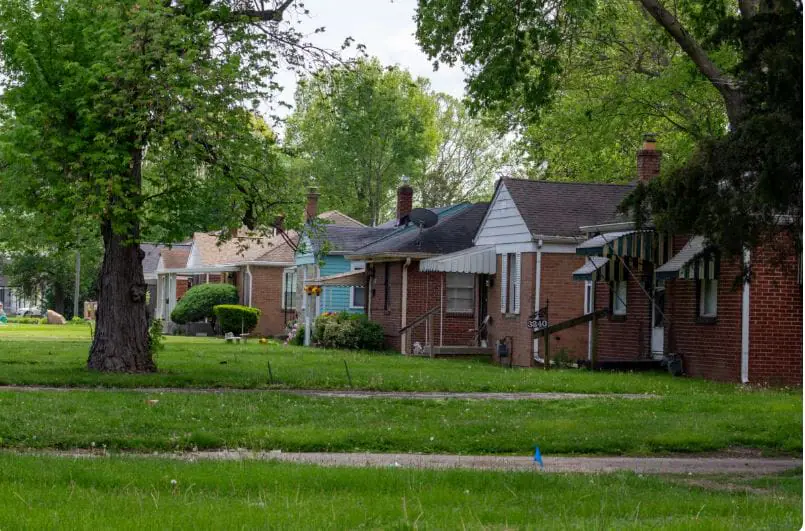Why Castleton UMC wants you to learn about housing insecurity
(MIRROR INDY) — Linda Bailey was fed up with the Facebook comments.
Strangers were too comfortable talking down to people who live at Lake Castleton Apartments after a recent shooting. That irked Bailey, who chairs a social justice and advocacy committee at nearby Castleton United Methodist Church.
As a nurse and diabetes educator, Bailey said she understands that whether it’s health, violence, food access or any number of other challenges people face, everything goes back to one thing — housing.
That’s why Bailey wanted her church to become part of the solution.
“We need to do more than just pray about the problem,” she said.
Castleton UMC will host a series of panel discussions about housing throughout the spring and summer.
Each panel will cover a different topic related to housing and is meant to give attendees not only a better understanding of housing issues in Indianapolis, but also an idea of what each of us can do to help.
Indianapolis routinely has among the highest eviction rates among cities tracked by Princeton University’s Eviction Lab. In the 12 months leading up to April 1, data shows there were 16 eviction filings for every 100 renters in Indianapolis.
That’s despite a goal laid out by Mayor Joe Hogsett and stakeholders in 2018 to effectively end homelessness in a five-year period. Indianapolis fell short of that goal.
For Castleton UMC Pastor Matt Landry, it isn’t just homelessness that deserves attention.
Landry said the church also is concerned about housing insecurity more broadly, with people facing the threat of eviction or having to couch surf so they at least have an indoor place to sleep.
That’s a problem Shawn Bush sees all too often in her role as director of student services at Lawrence Township Schools.
Bush, who will be on a panel about how housing insecurity affects education, said those challenges can be especially difficult on children.
“It’s a constant disruption,” she said. “There’s no routine, no regularity.”
After all, it’s difficult to pay attention to a math or English lesson if you’re not sure where you’re sleeping that night.
Bush’s team helps students and their families with non-academic needs. That could mean something as simple as getting an alarm clock for the oldest sibling so they can make sure everyone makes it to the bus on time.
On the other end of the spectrum is a student whose family is being evicted.
The school district doesn’t double as a housing agency, though, and Bush said trying to help those families can be “gut wrenching” work.
At another panel about the government’s role in housing, Rabbi Aaron Spiegel said he wants attendees to come away with an understanding of how Indiana’s lack of renter protections makes housing insecurity worse.
Indiana, for example, is one of a handful of states that doesn’t have a statute allowing tenants to withhold rent until necessary repairs are made.
Spiegel, who is executive director and president of the Greater Indianapolis Multifaith Alliance, said there is a moral imperative to “take care of the least of us.”
And the only way to make that happen at the government level, he said, is public pressure.
If you go
Castleton UMC will host four panels:
- 6:30 p.m. May 7 — Housing Instability’s Impact on Schools
- 6:30 p.m. June 4 — Housing and Violence
- 6:30 p.m. July 16 — How Housing Influences Health Outcomes
- 6:30 p.m. Aug. 6 — Government’s Role in Housing
Laura Merrifield Wilson, associate professor of political science at the University of Indianapolis, will moderate the discussions.
Learn more about the series and submit questions for the panelists here. The panels are free, and child care will be available.
Mirror Indy reporter Tyler Fenwick covers economics. Contact him at 317-766-1406 or tyler.fenwick@mirrorindy.org. Follow him on X @ty_fenwick.
